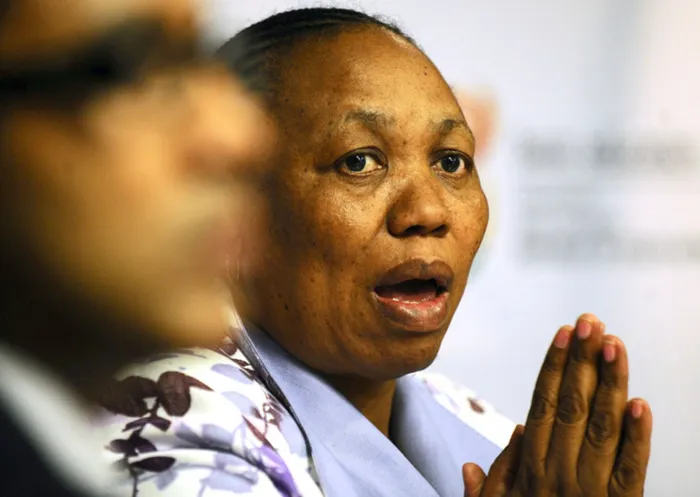Schools take minister to court

30/01/2012 Minister of Basic Education, Angie Motshekga briefs the media on the upcoming national school gaverning body elections 2012. Picture: Phill Magakoe 30/01/2012 Minister of Basic Education, Angie Motshekga briefs the media on the upcoming national school gaverning body elections 2012. Picture: Phill Magakoe
Cape Town -
The government is not meeting its obligations to provide all children with a basic education, say a group of school principals who have taken the minister of basic education and the MECs for education to court.
Education activist Jean Pease and the Progressive Principals’ Association have asked the Western Cape High Court to order the government to deliver a report on the steps it plans to take to remedy its failures in education.
“Far too many learners, particularly those who are ‘black’ and in township and rural schools, are not emerging from the system with the literacy and numeracy skills that constitute a basic education,” Pease’s affidavit reads. “Far too many matriculants in this category are not actually functionally literate and are accordingly not susceptible to further education at the level of post-school education (as is evidenced by the high drop-out rates at universities) and are not capable of holding down employment that requires functional literacy of employees.”
The respondents are the government, Basic Education Minister Angie Motshekga, the nine education MECs, the ministers of finance and social development, the public protector, the South African Human Rights Commission and the auditor general.
According to the notice of motion, the government had not met its obligations to “respect, protect, promote and fulfil the right of all children in South Africa to a basic education”.
“It has consistently failed to equip the majority of learners in South African public schools with sufficient literacy and numeracy skills to attain functional literacy which is central to basic education.”
The court papers said the government had also failed to:
* Provide textbooks and teaching materials to schools
* Equip all teachers with skills and training.
* Take steps to curb teacher absenteeism, lack of teacher accountability and lack of teacher professionalism.
* Ensure pupils were taught in their mother tongue.
* Make available comprehensive early childhood development services.
“The quality of instruction received by many learners in public schools is inadequate,” the court papers say.
“The state has failed to take reasonable measures to deal with this problem by improving teaching training or properly managing teachers… learners’ rights to basic education are infringed.”
Pease’s affidavit says the “apartheid legacy in education” is the source of many of the problems in education.
This “separate and unequal system of ‘black’ education ensured that ‘black’ learners were denied… access to educational resources and opportunities… enjoyed by white learners”.
Pease said the phrase “education crisis” was used to describe “the multifaceted dysfunction” of the education system. “Systemic failure… must surely follow… failing concerted and urgent action to… turn matters around.”
South Africa was consistently among the countries at the bottom of international education rankings.
The Department of Basic Education rejected “in the strongest terms” the allegation that it had failed to deliver.
“The department, since it was created in 2009, has made progress in many areas that have seen an improvement in the system. We call upon those making baseless claims (to) acquaint themselves with the facts before publishing falsehoods that mislead the public.”
michelle.jones@inl.co.za
Cape Times